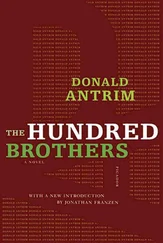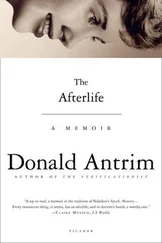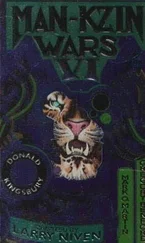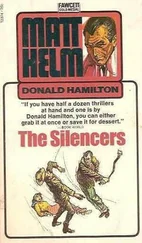“I don’t know! I don’t know!” I shouted at my Pancake House table companions. My breath was short and my hands were chilled; sweat broke out on my arms and my back, and I felt overcome with guilt.
“Easy, Lieutenant,” said Bernhardt. He sounded genuinely concerned and also a little frightened. He suggested, “Look, buddy, you can pick from both sides of that menu.”
“I can?”
“Yes,” said Rebecca.
“Really?”
It was true. Why hadn’t I considered this? I asked, “Will it cost extra?”
“There’s a two-dollar charge for combination plates.” Rebecca had such a sweet manner.
“Two dollars. That’s not so baaad, ” said Maria in a childish voice; she was, as we say in the psychology trade, talking me down.
I took a deep breath. I took another. “Okay. This is a pancake restaurant. Bring me some blueberry pancakes.”
Easy as that, it was done, and I felt the awful pressures subside, and I was able, almost miraculously, to make subsequent, smaller choices. Breath by gentle breath, my calm returned. I placed my order as, outside the window, the world turned dark. It was suppertime, and the buzzing of model aircraft had ceased; those wood-and-paper planes had made their final landings on the ancient airport’s broken runways. Beyond the runways, city lights sparkled. Birds in the trees cried and sang. Past the trees, in the distance, the hospital glowed in sunlight; it was our lighthouse.
Inside, the lights shone brightly, and noises were getting louder, as my Institute colleagues called out to one another, yelled from table to table across the room. It was terrific to see everyone drinking coffee and laughing, and I felt, as I rarely do anymore, that the mental health community is made up of gracious, affable men and women.
My pleasant mood did not last. I am afraid that I am not inclined toward a merry or carefree outlook. This is not to say that I do not enjoy life. On the contrary, my work gives me pleasure. Every now and then, on fine days when the air is cold and clear and sweet with smells of the first pollen from the blossoming trees, when the late-afternoon sun casts its rays through high purple or white clouds, and lights from office buildings reflect off the winding, icy river, when everything in the world looks magnificently, radiantly silver, as if lit from within — the trees, the cars, the haunted music building on the hill — in that luminous hour before dark, after the long day and before night’s descent, then the problems in my marriage do not seem insurmountable, because on those evenings I feel ready for sex.
Sometime soon, if I can find the time, I would like to draft a formal paper proposing air temperature, cloud cover, barometric pressure, moisture levels, wind speed, etc., as authentic relational constructs — the atmospheric versions of “other people,” in effect — with roles in ambient mood formation that are exactly analogous to archetypal roles played by human parents, siblings, lovers, sworn enemies, and so on. In my Climate Relations scenario, a malady like Seasonal Affective Disorder (in which emotional states vary on a calendric schedule, according to weather and light, the length or shortness of days, the yearly anniversaries marking traumatic or other formative experiences) can be more accurately diagnosed — and, I believe, effectively treated — as a special form of interpersonal crisis. This idea will be recognized by professional critics as a militant extension of Object Relations Theory in psychoanalysis. Some colleagues, objecting on grounds of anthropomorphism, will undoubtedly insist that I go too far when I suggest that high humidity acts on our inner life in the same manner as a wrathful mother. Lay readers will, I trust, comprehend, instinctively, the truth in these principles.
“Tom, my friend, I think you ordered the right thing. Those blueberry pancakes look good,” said Bernhardt after the food arrived. I did not enjoy the way the man leaned into my territory when he spoke — the dry breath on my cheek, the hat brim almost grazing my head — but, in spite of this, I felt touched by the awkwardness of Bernhardt’s transparent goodwill tactics.
“Have a bite.”
“I couldn’t.”
“Go ahead, Richard. There’s more here than I can eat. Dig in.”
“I’ve got dried eggs all over my fork, Tom. Why don’t you cut me off a section?”
“Richard, take a bite. Please. I don’t care about the eggs,” I lied, shoving my pancakes toward him down the table, establishing distance under cover of generosity.
“Do you want some of these eggs, Tom?”
“No, thanks.”
“Toast?” asked the Group counselor.
“No toast for me.”
“Cinnamon-raisin toast. I’ve got plenty.”
“I see. How many slices of toast do you have there, Richard? Seven? Eight?”
“This sausage is good,” said Maria, getting into the conversation. “Tom? Sausage?”
“I’ll pass, Maria.”
“Is that sausage hot?” asked Bernhardt. The man was without shame. He turned toward me and said, “You’ve got a nice piece of ham here, Lieutenant.”
“That’s Canadian bacon.”
“Is that what it is? It’s delicious, isn’t it? Not as spicy as Maria’s sausage. You can pour syrup on the sausage to tone it down,” Bernhardt said, chewing.
Escobar, watching Bernhardt eat from other people’s plates, wore the clinician’s slightly engaged, slightly weary expression. What did he think, in moments like these, of Americans?
It is worth considering, in light of this question, the ways that national, ethnic, and religious prejudices express, on a larger scale, the tendency among people in relationships to sicken and enrage one another. “What does Escobar think of Americans?” might be interestingly restated: “How can Judy Bernhardt dine with her husband without wanting him dead?”
“Oh, dear. I ate too much meat. I can feel my heart struggling to push the blood through the veins,” sighed Bernhardt. And, truly, the big man looked unwell. Moisture beaded his forehead; his small eyes had become enlarged and protrusive; and his breathing was, all of a sudden, rapid, shallow, alarmingly loud.
“Richard? Are you feeling all right?” asked Maria, doubtless concerned that Bernhardt was choking.
This man leaned back from the table; he managed a lengthy, sucking inhalation, a sound horrible to hear. “Better in a minute — catch my breath — piece of your hot sausage — stuck,” sputtered Bernhardt. Saliva, a clotted spray, discharged from his mouth. What was the right thing to do? Strike the man on the back? I reached out, raised my hand to wallop Bernhardt’s shoulder blades, and Maria exclaimed, “Tom, don’t!”
“No?”
Bernhardt’s face was the color of blood. His eyes looked ready to fly from their sockets. I was disappointed at not being allowed to hit him.
Maria explained, “Slapping a person on the back can dangerously lodge a foreign particle in the esophagus.” I could not help imagining that were Rebecca nearby, she would get a clear demonstration of the fact that we were not, any of us, bona fide doctors, or even competent in an emergency. Only Manuel remained unperturbed. Manuel always carries and expresses himself with great poise. He said to our colleague, “Listen to me. Are you listening? Swallow.”
We waited while Bernhardt gulped. The man was under great strain. He wasn’t suffocating — not yet.
“Swallow,” said Manuel again. “Swallow.” Hearing Manuel’s voice, I could not help thinking about our waitress, about the way Manuel had ordered coffee from her; and I imagined, then, Manuel’s voice speaking in a whisper, seductively, to my Jane:
“I love to look at your back. You are so beautiful. Tom does not appreciate your beauty. He is a fool. Now lean forward and hold tightly to the banister,” I imagined Manuel saying to her.
Читать дальше












